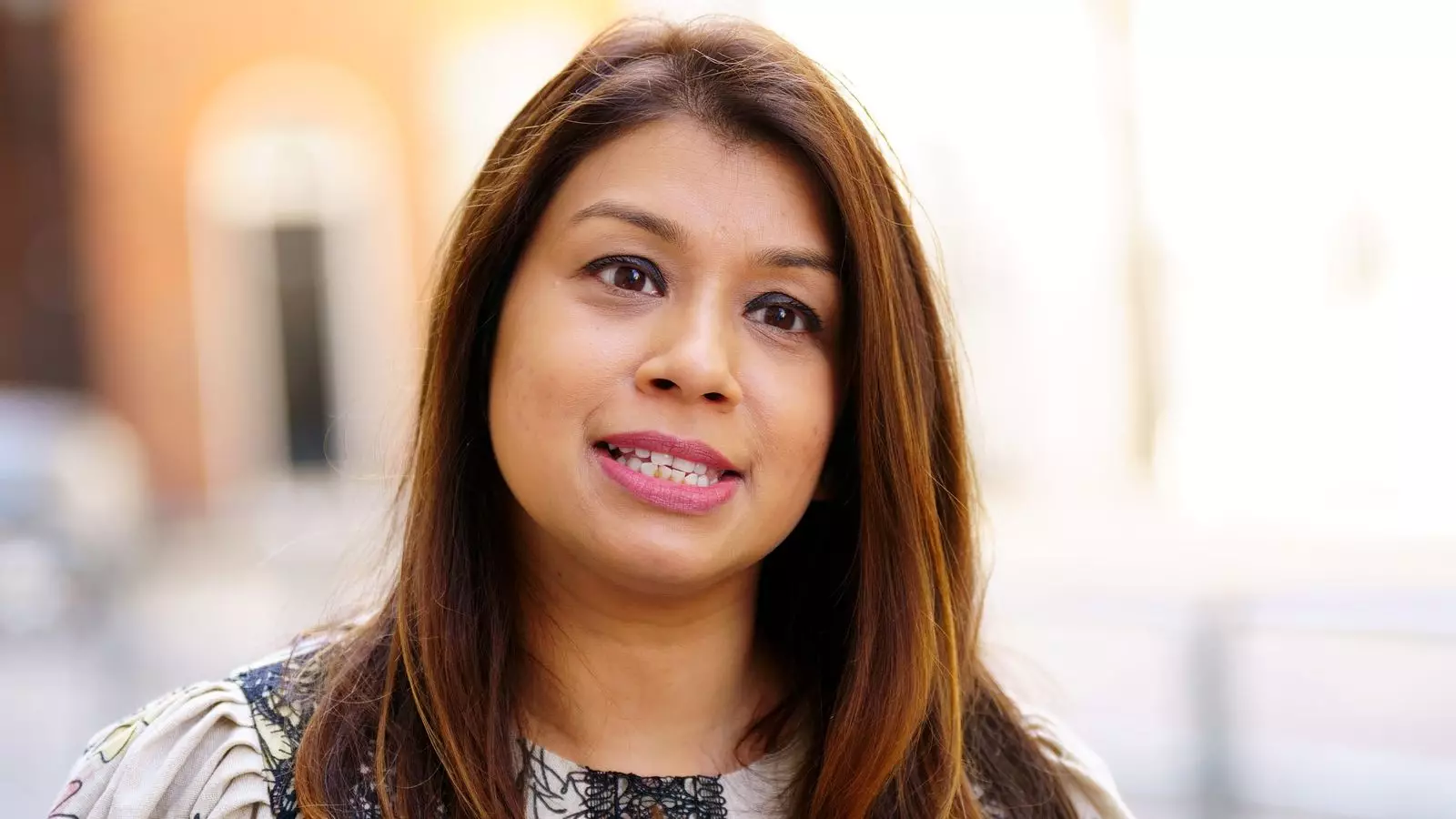The political landscape in Bangladesh has taken a tumultuous turn, particularly concerning former anti-corruption minister Tulip Siddiq. Recently, authorities have initiated a third inquiry into her activities, primarily focusing on allegations of money laundering and misuse of power. The scrutiny surrounding Siddiq not only raises questions about her integrity but also casts a long shadow over her connections to prominent political figures in Bangladesh, including her aunt, the ousted Prime Minister Sheikh Hasina.
In a recent media briefing in Dhaka, a wave of allegations surfaced as Siddiq’s resignation was freshly announced. Investigators confirmed that they are actively pursuing another line of inquiry involving Siddiq, amid growing concerns regarding properties in London that she is associated with. The fact that these properties have connections to her family, particularly to Sheikh Hasina and her Awami League party, only complicates Siddiq’s position further. The director general of the Anti-Corruption Commission, Akhtar Hossain, disclosed that the ongoing investigation is set to encompass not only Siddiq but also her uncle, Tarique Siddique, who has a checkered history in politics, previously serving as a security adviser to Hasina.
The political context is crucial. Following a turbulent period marked by violent protests, Hasina’s administration has been the target of accusations regarding corruption and abuse of power. As a result, Siddiq’s timing of resignation and the subsequent allegations against her seem to be deeply intertwined with the fallout of her aunt’s regime and the broader implications of political accountability in Bangladesh.
Siddiq’s Defense and the Burden of Proof
In the face of these serious allegations, a spokesperson for Siddiq vehemently denied any wrongdoing, emphasizing the absence of evidence to support the claims. They asserted that she has not been contacted regarding the allegations, thus casting further doubt on the legitimacy of the inquiries being carried out against her. However, this defensive stance raises questions about transparency and issues of accountability that are central to political discourse.
Moreover, Siddiq’s efforts to address the situation by consulting the prime minister’s standards adviser indicate her awareness of the reputational risks linked to her family ties. Although the adviser, Sir Laurie Magnus, did not find evidence of impropriety, he remarked on the need for greater vigilance regarding the potential repercussions of Siddiq’s associations. This adds another layer to the public image of Siddiq as someone who, while claiming innocence, has been unable to extricate herself from the political baggage tied to her family.
The ongoing investigations add a degree of complexity to Siddiq’s case, as her involvement is now considered within at least three different corruption-related inquiries. One involves the purported illegal allocation of land in a developing district near Dhaka, while another is centered on the alleged embezzlement of $5 billion linked to a nuclear project in collaboration with Russia. Together, these inquiries construct a daunting portrait of systemic corruption that may connect various officials across multiple levels of government.
Furthermore, prominent figures within the interim government, including Nobel laureate Muhammad Yunus, have also urged for a thorough investigation into Siddiq’s London properties. His statements suggest a broader intention to recover assets believed to be linked to corrupt practices under the previous regime. This sets a chilling precedent: it indicates that consequences may extend well beyond Siddiq, possibly implicating others who are allied with the former administration.
The nature of the allegations levied against Siddiq is reflective of a larger issue within Bangladeshi politics: the pervasive challenge of corruption that seeps into the fabric of governance. As the interim government attempts to establish a narrative of transparency, each investigation into Siddiq’s activities not only affects her reputation but also impacts the public’s perception of political reform.
While Siddiq navigates the turbulent waters of public scrutiny and legal inquiry, the fundamental questions about accountability and governance in Bangladesh linger. The fate of her political career hangs in a precarious balance as the country seeks to confront its past and foster a truthful narrative about corruption and integrity in leadership. The outcomes of the forthcoming investigations will not only determine Siddiq’s fate but may also redefine political accountability in Bangladesh for years to come.

Leave a Reply